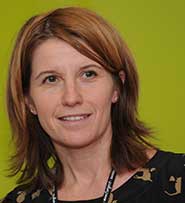Dr Séverine Tasker from the Bristol Veterinary School has become the 2013 recipient of the Petplan Charitable Trust Research Award, which recognises a person, or team, who has made an outstanding contribution in the field of veterinary research.
Dr Tasker is a Diplomate of the European College of Veterinary Internal Medicine – Companion Animals (ECVIM-CA), holds a Diploma in Small Animal Medicine from the Royal College of Veterinary Surgeons (RCVS), and is an RCVS Recognised Specialist in Feline Medicine.
Over the past five years, she and her team have had a prodigious output both in terms of grants and peer-reviewed publications. Her passion for cats has been the driving force behind her research into the pathogenesis of their haematological and infectious diseases, but the unifying theme of her research is her expertise in molecular genetic techniques. She has applied these techniques with her team at the Bristol Veterinary School to the diagnosis of genetic diseases, such as polycystic kidney disease and pyruvate kinase deficiency in cats, as well as to feline infectious agents such as haemoplasmas and feline infectious peritonitis. She has a very successful collaboration with Professor Siddell, an internationally recognised authority on human coronaviruses.
Dr Tasker is also an internationally recognised expert in haemoplasma infections, not only in cats but in many other species including dogs. She was also the first person to identify such an infection in a human and has worked in collaboration with the two other international centres of haemoplasma research, Colorado State University and the University of Zurich.
Her team was the first to map the genome of the two major feline haemoplasmas, and currently one of her major projects is developing in vitro culture of previously unculturable haemoplasmas so that these can be studied without using naturally infected cats as the source of organisms.
